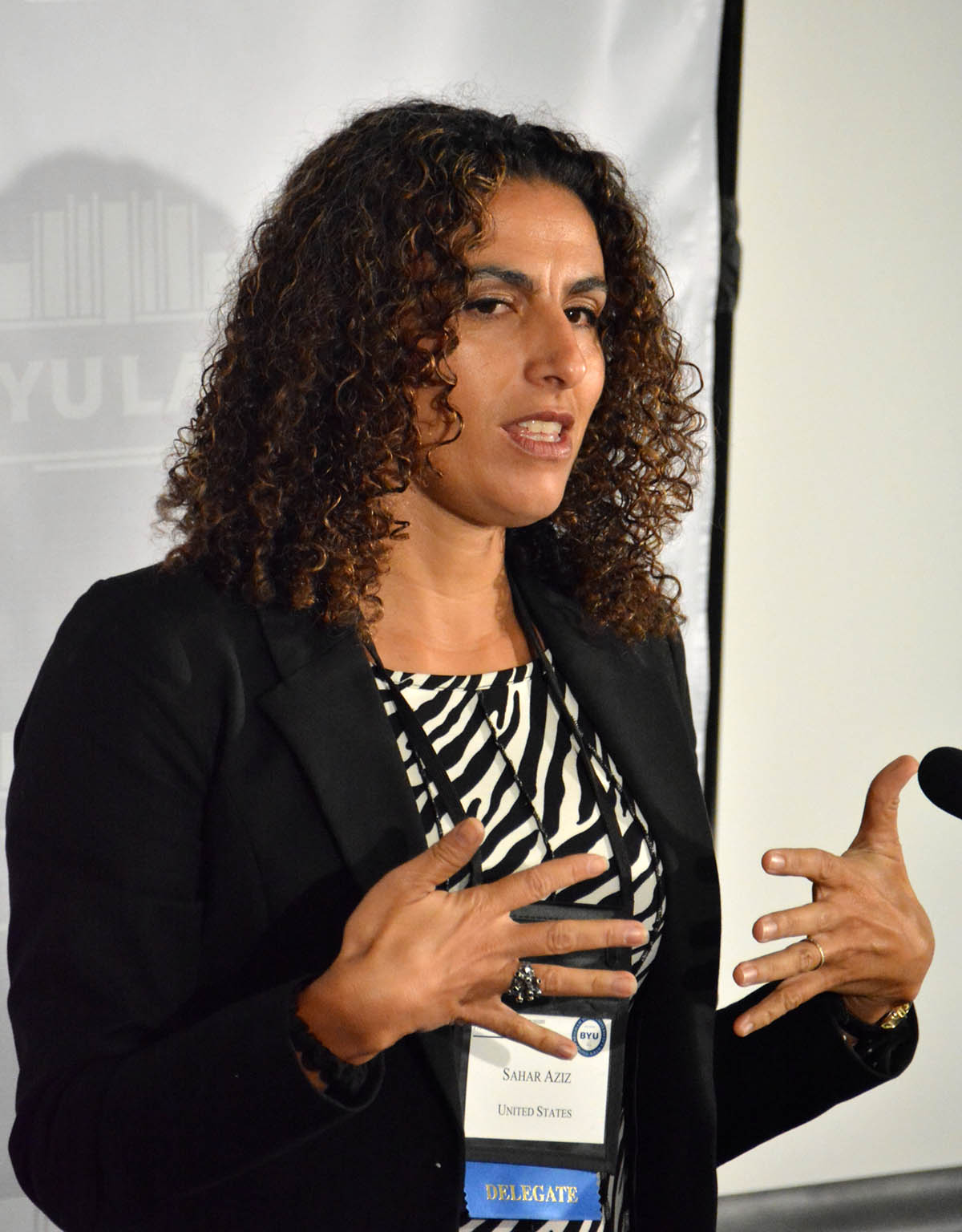Symposium 2016: First Plenary Session – Religious Rights and Culture

by Alexander Alton
The topic of the first plenary session of the 23rd Annual International Law and Religion Symposium was Religious Rights and Cultures. Elizabeth Clark, Associate Director of the International Center for Law and Religion Studies, moderated the session. The panel featured Rajeev Bhargava, Senior Fellow and former director of the Centre for the Study of Developing Societies; Sahar F. Aziz, Professor of Law at Texas A&M School of Law and a Nonresident Fellow at the Brookings Doha Center in Qatar; and Simon Gerard McCrossan, Barrister and Head of Public Policy for the Evangelical Alliance in the United Kingdom.
Professor Bhargava lectured about different types of diversity, namely diversity within religious groups (vertical diversity), diversity of religious groups with similar theological backgrounds (horizontal diversity), and diversity of religious groups with different theological backgrounds (deep diversity). He taught that when we are really serious about diversity, we are tolerant when the norms and requirements of others’ religions conflict with the norms and requirements of our religion. He cautioned about various types of conflicts, dominations, and exclusions that arise in the absence of such tolerance.
The topic of Professor Aziz’s presentation was “American Muslims at the Intersection of Religious Freedom and Racial Justice”. She explored how the post 9/11 discriminatory experiences of Muslims in America inform the racialization of religion in America. Professor Aziz summarized the history of racial and religious persecution in the United States, comparing past persecutions of racial and religious minority to current persecutions of Muslims. She explained how Islam has become racialized as foreign, dangerous, violent, and terroristic; thus, it is no longer treated as a religion deserving of legal protection in accordance with the Constitution and statutory law.
Simon McCrossan spoke about fault lines of contention in Europe and the United Kingdom. His main focus was on the UK’s recent creation of the idea of “non-violent extremism,” and how the government is using this new definition of extremism to crack down on dissent. He also explained how the government is becoming the arbiter of true and false interpretations of religion, thereby determining what type of beliefs and actions are deserving of protection. He posited that, in the UK, extremism is simply the new moniker for marginalization.